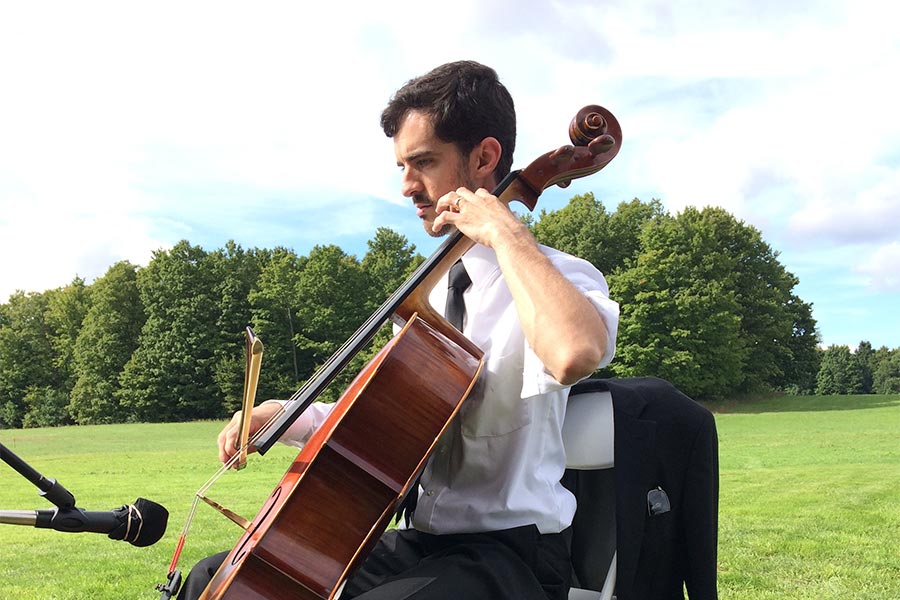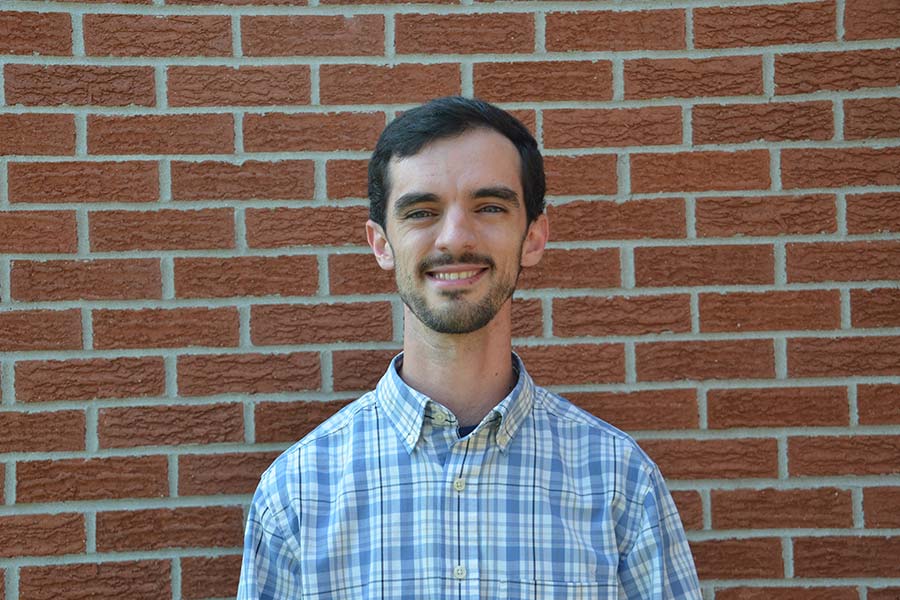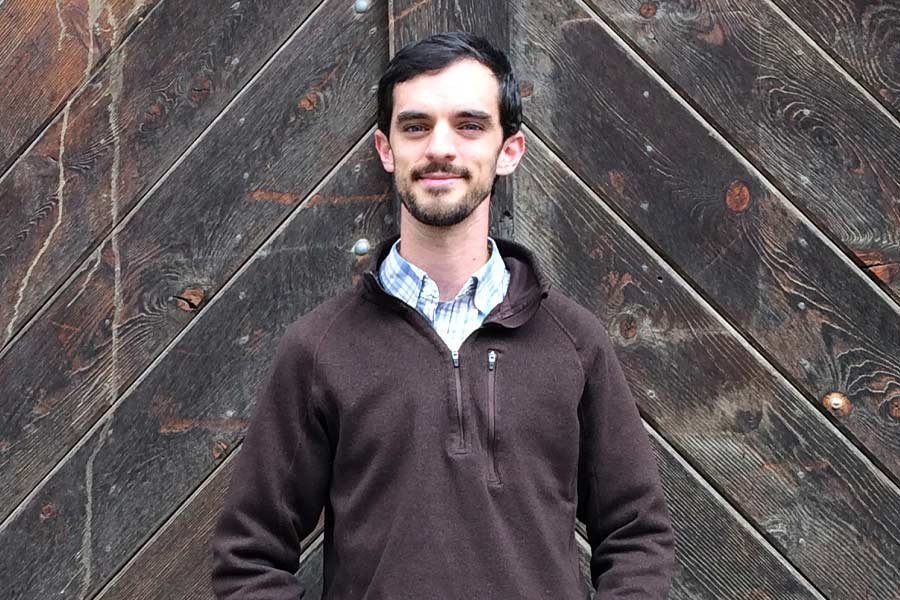
Teaching has never been an easy calling. Educators already face heavy workloads, long hours, and constant pressure. So, when schools push policies forcing staff to violate their consciences, this only makes their jobs harder.
But rather than caving to these policies, some teachers are holding fast to their beliefs—teachers like John Kluge.
John’s school district implemented a policy requiring its employees to refer to students using names and pronouns that don’t align with the student’s biological sex. But John knew such a policy would only hurt his students. And because of his religious beliefs, John could not refer to students in a way that denies reality and lies to children who are struggling with gender dysphoria.
But instead of John being granted a reasonable, religious accommodation, his decision to raise these concerns ended up costing him greatly.
Who is John Kluge?
John Kluge was a music teacher at Brownsburg High School from 2014 to 2018. Brownsburg always gave him positive written performance evaluations, which stated he met or exceeded the district’s expectations. Students and parents were fond of him as well.
John is also a Christian. He has been involved in his church in multiple capacities. He is an ordained elder, served as the church’s worship leader, led its youth ministries, and directed its AWANA Bible program for children.
As a Christian, John holds to the biblical teaching that God created everyone either male or female, and that sex cannot be changed. That’s why he became concerned when his school district introduced a policy requiring staff to refer to students using names and pronouns that were inconsistent with the students’ sex.
John’s Struggle Against the New Policy

In early 2017, John’s school district, Brownsburg Community School Corporation, introduced policies regarding students who identified as the opposite sex. The district brought in a pair of staff members to speak at faculty meetings, and they informed teachers that referring “to a transgender student by their biological sex and not us[ing] the student’s preferred pronoun” would be treated as “harassment” and punished accordingly.
John wrote a letter to the school district raising his concerns that referring to students by names that were inconsistent with their sex would harm these students by denying the truth. John also said the new policy would force Christian students and faculty to express messages that did not align with their beliefs.
John’s concerns were ignored, and when he objected to referring to these students by names inconsistent with their sex, the superintendent gave him three options: follow the policy, resign, or be fired.
When John declined the first two options, the superintendent suspended him for two days with the intention of firing him. Once the suspension was over, John met with the superintendent and the school district’s human resources director to request a religious accommodation. He asked to refer to all the students by their last names—”like a sports coach”—and the superintendent agreed.
John then referred to all his students by their last names, which allowed him to do his job while not violating his conscience. When a student asked him about his calling students by their last names, he said, “Well, you know, we’re all a team and a sports coach calls their team members by last name only. I want to foster that community and we’re all working towards one goal.” This was the only time a student asked about John’s last name practice.
For an entire semester, there seemed to be no issues. There were no classroom disturbances, canceled classes, student protests, or written complaints related to his use of the students’ last names. The students did very well during this time, too. The Brownsburg orchestras performed “better than ever” in competitions, students excelled on their AP music-theory exams, several of the students received performance awards, and student participation in the Brownsburg orchestras’ extracurricular activities was high.
But in December 2017, the principal informed John that accommodating his religious beliefs had “creat[ed] tension,” and urged John to resign at the end of the school year. This was the first time John had heard of any “tension” about his accommodation, and the principal never told him which students or teachers were upset.
The principal met with John again a month later and told him directly that he wanted John to resign. John said he would only consider resigning after the school announced its new rules for transgender-identifying students.
In January 2018, the school district announced its new policy of referring to students by “preferred” names and pronouns. Starting the next school year, the policy also specifically revoked the accommodation which allowed John to refer to students by their last names. When John went to the principal and the HR director to discuss this, they would not even consider his accommodation.
The school district ultimately forced John to resign at the end of the 2017-2018 school year.
John Can’t Speak Messages That Violate His Conscience
Words—including pronouns—have meaning. They carry a message with them. And John could not speak messages that were against his beliefs. That’s why he sought a religious accommodation from the school in the first place. At first, the school allowed him to refer to students by their last names instead. But that accommodation was unjustly revoked.
Individuals, including employees, have a right to live and speak according to their beliefs. Under Title VII, employers are prohibited from discriminating against any employee because of his or her religion. If an employment requirement would force an employee to violate his or her beliefs, employers must make a “reasonable accommodation” for that employee unless an accommodation would create an “undue hardship.”
The Supreme Court reaffirmed this principle in Groff v. DeJoy (2023), a similar case to John’s in which Mr. Groff, a postal worker, sued the U.S. Postal Service for failing to accommodate his religious practice. In Groff, the High Court unanimously held that Title VII requires employers who deny an accommodation to demonstrate that granting the accommodation would result in undue hardship and substantially increased costs. The Court also affirmed that employers may not deny an accommodation based on complaints about or animosity to a particular religion, religion in general, a religious practice, a religious accommodation, or the notion of accommodating religious practice. As the Supreme Court explained, that would put Title VII at war with itself.
That is what makes the school’s actions so shocking. It denied John’s accommodation and then forced him to resign when there was a perfectly reasonable solution that had already been working. Though John’s legal journey has had many twists and turns, he continues to fight alongside ADF for his religious freedom and the right of all teachers to speak according to their beliefs.
Affirming Religious Freedom

After John was forced to resign, he filed suit with the help of an Alliance Defending Freedom allied attorney. After an unfavorable decision from the lower court, he then appealed with the help of ADF to the U.S. Court of Appeals for the 7th Circuit in August 2021.
In 2023, the appeals court sent the case back to the district court in light of the U.S. Supreme Court’s decision in Groff v. DeJoy. Despite the Supreme Court upholding religious accommodations in Mr. Groff’s case, the district court once again denied John’s request to protect his religious freedom.
John filed his second appeal with the 7th Circuit in July 2024, asking the court once again to reverse the lower court decision and reinstate the case. Thankfully, in August 2025, the appeals court ruled that the school district must face a jury for the way it treated John.
This means that a jury must decide whether John’s reasonable accommodation was an undue hardship on the school district. The school district could be held liable for damages and substantial attorney fees for its religious discrimination.
Support Teachers’ Freedom of Speech and Religion
ADF is supporting John at no cost to him. Thanks to your generous support, he is able to stand for the truth, his rights, and the rights of all Americans without the crushing weight of legal fees.
Your gift today helps us defend John and other teachers’ right to speak according to their beliefs. Will you give today and take a stand for truth with John?




